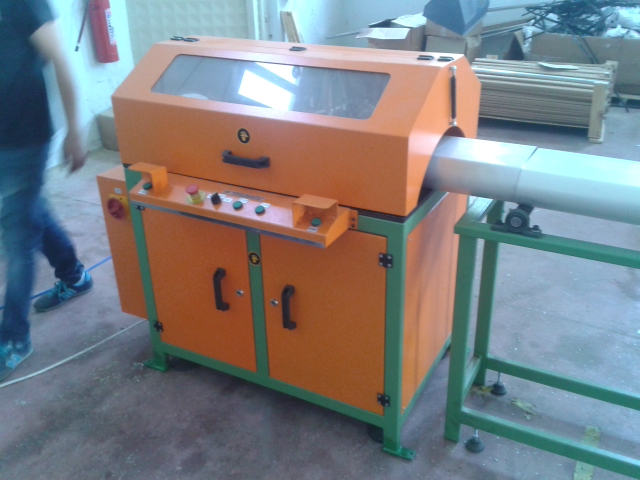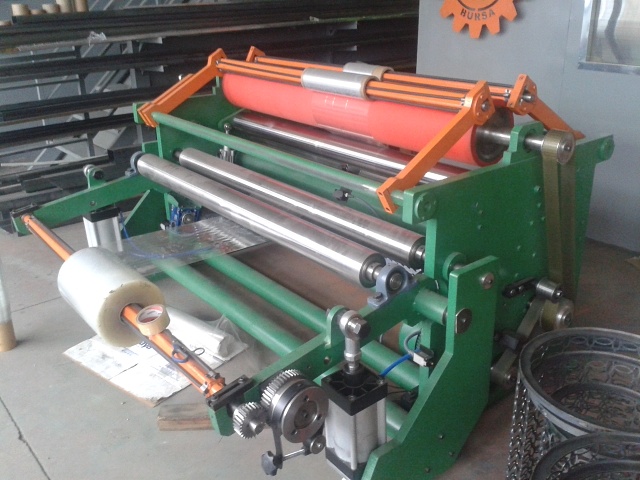Choosing the right industrial machinery is no small task. It’s a major investment that can significantly impact your business’s productivity, profitability, and long-term success. This guide will help you navigate the complexities of this decision-making process.
İçindekiler Tablosu
Understanding the Importance of Industrial Machinery
Industrial machinery is the beating heart of many businesses. Whether it’s a conveyor system in a packaging factory, a CNC machine in a metalworking shop, or a press in a print factory, these machines play a crucial role in operations. Choosing the right machinery can lead to greater efficiency, improved quality, and enhanced productivity.
The Role of Industrial Machinery in Business Operations
Industrial machinery enables businesses to perform tasks that would be impractical or impossible by hand. Machines improve the speed and precision of work, allowing businesses to increase their output and quality.
Productivity and Profitability: The Direct Impact of the Right Machinery
The right machinery can dramatically increase a business’s productivity. When a machine can perform a task more quickly and accurately than a human, the result is an increase in the quantity and quality of output. This increase in productivity often translates directly into increased profitability.
Understanding Your Business Needs
Before you can choose the right machinery for your business, you need to understand your business’s specific needs. This understanding comes from a deep examination of your operations, objectives, and constraints.
Examining Your Operations
What tasks does your business perform, and how could machinery help? Answering this question requires a deep dive into your business’s day-to-day operations.
Identifying Your Objectives
What are your business goals, and how can machinery help you achieve them? By understanding your objectives, you can identify the types of machinery that can help you reach them.
Considering Your Constraints
Every business operates within certain constraints, such as budget, space, and workforce. These constraints will play a significant role in your machinery selection.
How to Choose the Right Industrial Machinery for Your Business
Choosing the right machinery for your business involves considering several factors, including the machine’s function, cost, reliability, ease of use, and maintenance requirements.
Identifying the Function of the Machinery
The first step in choosing the right machinery is to identify the function it will serve in your business. This requires a clear understanding of your business operations and objectives.
Considering the Cost of Machinery
While the cost of machinery is often a significant factor in the decision-making process, it should not be the only consideration. It’s important to balance cost with other factors such as functionality, reliability, and maintenance requirements.
Evaluating the Reliability of the Machinery
A reliable machine is an asset to your business, reducing downtime and increasing productivity. It’s important to research a machine’s track record and reputation before making a decision.
Assessing the Ease of Use of the Machinery
A machine that is difficult to use can slow down operations and frustrate employees. It’s important to choose machinery that is user-friendly and fits well within your workforce’s skill set.
Understanding the Maintenance Requirements of the Machinery
All machinery requires maintenance. Understanding the frequency and cost of maintenance is an important part of the decision-making process.
Evaluating Machinery Suppliers
Choosing the right machinery also means choosing the right supplier. The right supplier will provide quality machinery, excellent customer service, and ongoing support.
Investigating the Reputation of the Supplier
A supplier’s reputation is a strong indication of the quality of their products and service. Be sure to research potential suppliers thoroughly.
Examining the Supplier’s Customer Service
Good customer service is essential in a machinery supplier. The right supplier will be responsive, knowledgeable, and ready to assist with any issues that arise.
Assessing the Supplier’s Ongoing Support
Ongoing support is crucial when purchasing machinery. This includes parts availability, maintenance services, and technical support.
FAQs about Choosing the Right Industrial Machinery for Your Business
1. How do I know if a machine is reliable?
Look at the machine’s track record. This might involve speaking to current users, reading reviews, and researching the manufacturer’s reputation.
2. How important is cost when choosing machinery?
Cost is a crucial factor, but it should not be the only consideration. It’s essential to balance cost with other factors such as functionality, reliability, and maintenance requirements.
3. How do I assess a supplier’s reputation?
Investigate the supplier’s history, speak to their previous customers, and read reviews. A supplier’s reputation will give you an idea of the quality of their products and service.
4. What type of ongoing support should a supplier provide?
A good supplier will provide ongoing support in the form of parts availability, maintenance services, and technical support.
5. How do I determine the function of machinery in my business?
This requires a deep understanding of your business operations and objectives. You need to identify the tasks that the machinery will perform and how it will help you achieve your goals.
6. How can I ensure the machinery is user-friendly?
Request a demonstration or trial period to evaluate the machine’s ease of use. Consider the skill level of your workforce and how well the machine fits within that skill set.
In conclusion, choosing the right industrial machinery for your business is a complex task, but with a thorough understanding of your business needs, a careful evaluation of different machines and suppliers, and thoughtful consideration of factors such as cost, reliability, ease of use, and maintenance requirements, you can make a decision that will boost your productivity, improve your profitability, and set your business up for long-term success.




Leave A Comment